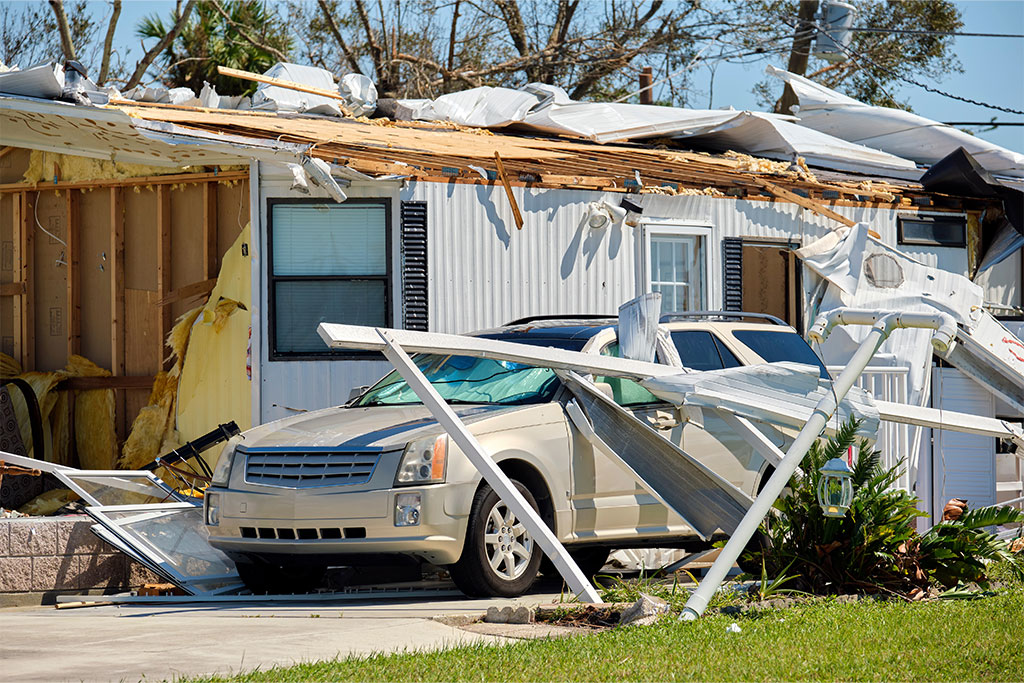In the event of a hurricane, earthquake, or other natural disaster, where does one even begin picking up the pieces?
Emergency preparation, while necessary, cannot always protect us from the unthinkable. And it is important that you know you are not alone. While the prospect of rebuilding or making major repairs to your home is daunting, there are government assistance programs and other resources available to you.
Here at 995Hope, we have spotlighted some of those critical organizations and have also created an essential checklist of steps to take when you are recovering from a hurricane or other natural disasters.
Our HUD-certified counselors can begin a conversation about where you are today. Take the first step and call.
1.) Exercise caution when returning home.
If the authorities in your area have authorized your return, follow designated roadways and routes and be cautious upon entering your home. Return in daylight when you have full visibility and avoid entering entirely if your home has sustained severe structural damage. Potential gas leaks, standing water, wet or damaged electrical equipment or even shifting noises that could indicate weakened walls or ceilings all warrant a walk-through from a properly-vetted building inspector or government authority.
2.) Invest in the proper safety gear.
The CDC offers a useful infographic that shows what safety gear you should wear once it has been determined that you can move safely through the home. A hard hat, goggles and ear coverings, work gloves, long sleeves and pants, steel-toed boots and an N-95 respirator help protect you from accidents or injuries as you begin to document damage. And while generators are commonly relied on, do not overlook basic safety measures.
3.) Take photos and document everything.
Before you can begin the process of cleaning up, it is important to provide exterior photos as well as a detailed, room-by-room photographic catalog of damages. You will also want to create an itemized list of damaged and lost items. Do not throw any damaged items away or make any permanent repairs until you have filed an insurance claim.
Our HUD-certified counselors can begin a conversation about where you are today. Take the first step and call.
4.) File a claim with your insurance company.
If you live in a region that’s disaster-prone, your homeowners’ insurance may account for that. Have your insurance policy number ready when you contact an agent and ask them to explain what your coverage does and does not include. They will send you the necessary claims forms and you will want to complete and return these forms as quickly as possible, as many states set time requirements for submission. If you need to relocate, keep receipts for all expenses incurred. Most insurance policies account for emergency living arrangements.
5.) Apply for government assistance.
If your insurance company does not cover all your losses or is delayed, you may be eligible for assistance through FEMA (Federal Emergency Management Agency.) Government websites can feel vast and overwhelming, but a good first step is entering your zip code to determine whether you can apply online for individual assistance. Prefer talking to someone directly about the application process? The FEMA phone number is 1-800-621-3362 and you can call this helpline seven days a week between 7am and 11pm (EST.)
6.) Prioritize urgent repairs.
Once you have thoroughly documented damages and have filed an insurance claim, you should make a list of necessary repairs in order of urgency. Consulting with your insurance adjustor or qualified contractor can give you a clearer sense of how much you will pay for repairs and whether you will need to secure temporary housing. If you have need for immediate emergency housing, The American Red Cross has a list of open shelters and you can also explore available resources through your states’ emergency management agency.
7.) Reach out to others.
Recovering after a natural disaster can feel deeply overwhelming, both emotionally and physically. Take inventory of your own bandwidth and reach out to relatives and friends in your area who might be able to offer a temporary place to stay, meals, or clean-up assistance. You can and should not carry the burden alone. If you are feeling depressed or anxious, free counseling services are available 24/7 through the Disaster Distress Helpline (1-800-985-5990.)
We Are Here to Help
If you need help understanding how to handle your mortgage after a disaster, 995Hope would like to be a resource for you. Our professional, caring certified HUD counselors can often help you work with your mortgage servicer, offer referrals to local, statewide, and national resources, and create a customized action plan for you. Calls are free and completely confidential with no pressure.




